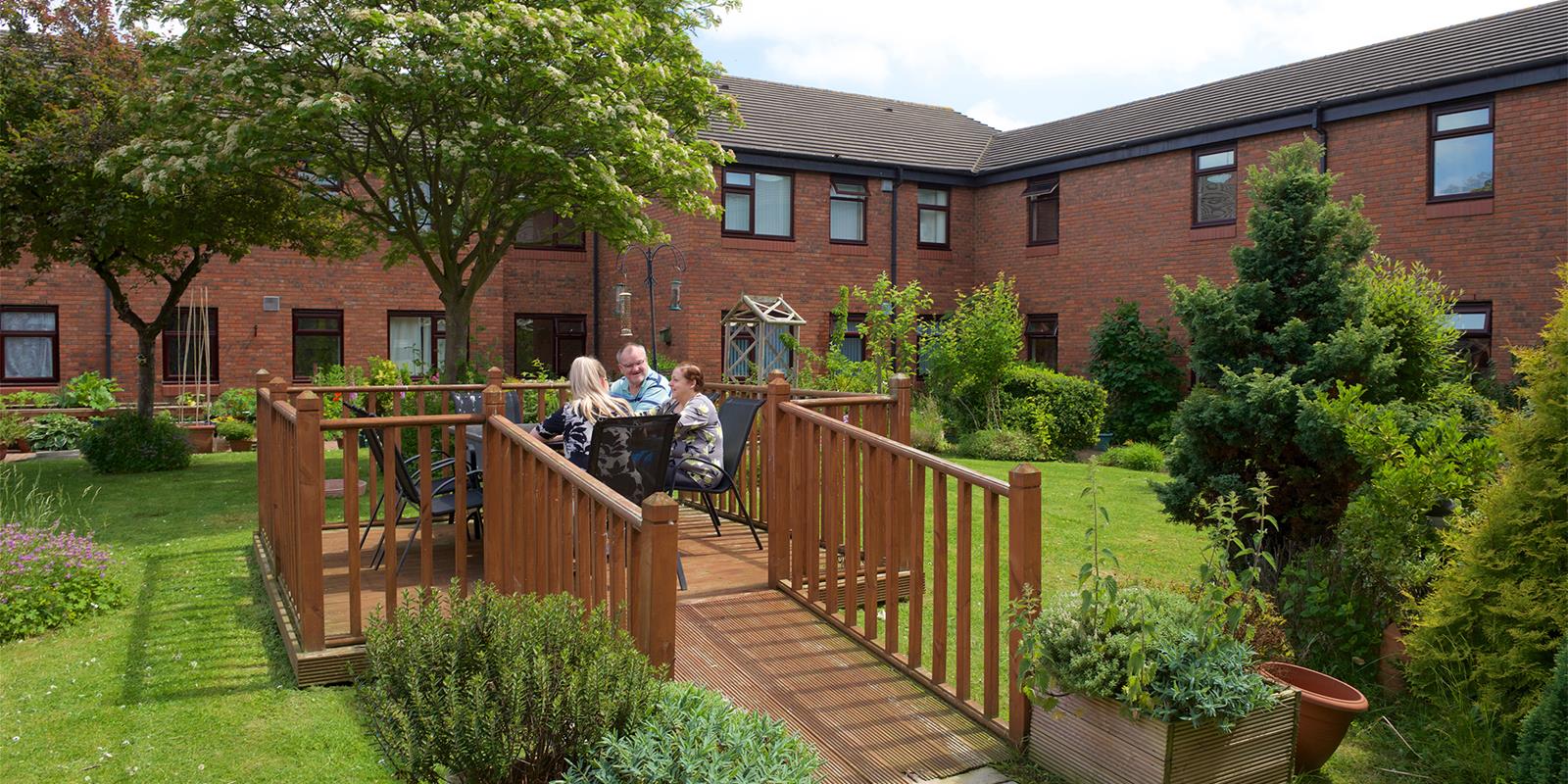As an Accent Customer, you may be required to pay a regular service charge, which helps us maintain your block or estate, such as communal cleaning and grounds maintenance.
If you’re a homeowner, this might also include costs to do with structural repairs and maintenance.
Paying your service charge
Frequently asked questions about paying your service charge at Accent.
You can find out more details of all your charges explained:
● inside your rent and/or service charge booklet, which is sent to you each year before any new charges start
● on MyAccount
● by contacting our Housing Hub
● by speaking with your housing partner, specialist housing partners or leasehold and homeownership partner
We regularly review how much your service charge costs, which means the amount you need to pay could go up or down. This happens roughly once a year but can vary. Check your agreement to find out more.
If we do change your service charge amount, we’ll send you a new service charge summary in advance to confirm the new charge.
How often you pay depends on the terms of your agreement. It could be once a year, every six months, monthly, fortnightly or weekly.
Information on how often you pay and when you should pay will be in the charge notification booklet we send to you.
There are lots of ways you can pay your service charge, from Direct Debit to online to allpay. It’s all explained on our Ways to Pay page.
Yes, you can pay the majority of service charges with Housing Benefit. However, there are a handful of service charges that are not included, which are often specific services for an individual or the inside of someone’s home, as opposed to communal areas.
This might include the heating and hot water in an independent living scene, which is supplied through a communal heat network and would be classified as personal utility costs, and therefore can’t be covered by Housing Benefit.
Unlike Housing Benefit, the rules for Universal Credit are slightly different. There are a few exceptions, but you’ll need to speak to us to find out which specific service charges are not included when you apply for the benefit.
Email us now on customerservices@accentgroup.org or fill in the form on our contact us page.
If you’re worried you can’t make the payments, it’s important you let us know us as soon as possible.
We’ll be happy to offer you advice and help, and can refer you to agencies and charities that can give you some support.
However, it’s part of your agreement to pay your service charge promptly. If you don’t, we’ll take appropriate action to recover any arrears, and your home might be at risk if you don’t make the required payments.
If you need help with budgeting and benefits, you can use the welfare support calculator, set up a personal plan with our money navigator and more on our supporting you page.
Own your own home?
When it comes to paying service charges with Housing Benefit or Universal Credit, bear in mind that homeowners might have different eligibility rules – if you’re not sure, email us at customerservices@accentgroup.org or fill in the form on our Contact us page.
Service charge FAQs
Questions about your service charge?
Check your agreement with us in your documents, or log in to MyAccount to learn more information.
You can also contact us by email, or speak to your housing partner, service manager, or leasehold and homeownership partner.
What your service charge pays for depends on where you live, and what kind of facilities you have available.
The specifics will be available in your agreement or contract, but you can have a look at some examples in the below PDF. Remember, you might only get some or part of the services listed in the example.
Grounds maintenance and cleaning take place on a regular schedule. These will vary according to where you live, but you see an example of a typical schedule below.
● Grounds maintenance schedule [PDF]
If you live in one of our newer homes, you may not be due cleaning visits every week.
If you’d like to find out exactly when the maintenance schedule takes place at your home, you can check with your housing partner, or your leasehold and homeownership partner.
Alternatively, contact us by emailing customerservices@accentgroup.org or fill in the form on our Contact us page.
Customers who rent their home from us pay fixed service charges. Once the service costs are set, the charge does not change or vary in any financial year.
Customers who own their home as leaseholders, shared owners or freeholders pay variable service charges. As with fixed services charges, once the service costs are set, the charge does not change or vary in any financial year.
The charges for each service are carefully calculated every year, using either known contract prices or estimates based upon prior spends or other information available relating to activities that happen in your scheme and in your estate.
The service charge is an ‘estimate’ of the costs for providing the services for the coming year and we do our best to make these estimates as accurate as possible. All costs are ‘apportioned’ (divided) between the homes receiving the services (your booklet explains what apportionment means).
The only difference between variable service charges and fixed service charge is that at the end of the year, customers on a variable charge will either get some money back or have to pay more, while customers on a fixed charge do not.
Both fixed and variable service charges:
● are calculated and set in advance
● require you to pay the same amount
● mean you must pay the service charge for the full period duration
Variable service charge
Customers who pay a variable service charge get a statement at the end of each financial year, in early April. The statement compares how much the previous year was estimated to cost against how much it actually cost.
● If the actual costs were less than estimated, and there is a surplus, you’ll either get the difference credited back to your account or taken off your next service charge, depending on what your agreement says.
● If the actual costs were more than estimated, there is a deficit, and you might get an invoice sent to you to cover the difference. This might be carried forward to the next financial year, depending on your agreement. If you do receive an invoice, you’ll have 14 days to pay it.
Fixed service charge
Customers who pay a fixed service charge don’t get a service charge statement. They don’t get any credit back if there’s a surplus, and don’t have to pay any extra if there’s a shortfall.
Your service charge is calculated according to your agreement, and which services you receive.
If your service charge is different to a neighbour’s, this is because they likely receive different services to you or have a different agreement to you.
Not everyone living in the same place gets the same services. For instance, if you live on the ground floor of a building and can go in your front door from the street, you may not have to pay for the cost of maintaining the internal communal area. Meanwhile, a neighbour living very close by might need to access their home from an inside hallway, and need to cover the price of lighting and cleaning.
Your service charge is designed to cover the actual cost of services you receive. To keep this as accurate as possible, we review your service charge regularly, usually every year, and then update it according to expected future costs.
Factors that can influence future costs include our contracts with our suppliers, the labour market, and the changing cost of materials.
Homeowners may have to pay sinking funds, cyclical funds and estate reserve funds on top of their service charge. Unlike service charges, these extra funds are kept in a separate bank account and generate interest over time.
If you pay these funds, you’ll get a separate statement at the same time as your service charge summary which outlines how much is in these funds, how much has been spent and how much interest has been accrued.
Sinking funds
Sinking funds are reserves of money that are set aside for the future to pay for major upgrades like:
● replacing old or broken windows
● buying a new lift
● upgrading door entry systems
Cyclical funds
Cyclical funds are reserves of money that are set aside for the future to pay for regular decoration work, like:
● painting inside stairwells
● painting or restoring external window frames
Estate reserve funds
Estate reserve funds are reserves of money that are set aside for the future works to the wider estate you live on, like:
● laying down new tarmac on the roads around the estate
● replacing old or broken fencing
No, we don’t profit from service charges. Accent Housing is a not-for-profit organisation, and we only use service charges to help us cover the cost of providing services to customers.

Let us know what you think
It’s important to us that our services are provided to the high standards we agreed with our contractors. We keep a close eye on our contracts to make sure of this – however sometimes, we might miss things.
If you have any concerns about the quality, frequency, cost, or anything else to do with our grounds maintenance and cleaning services, we’d like you to let us know so we can improve it.
Get in touch with us now by emailing customerservices@accentgroup.org or fill in the form on our contact us page.





